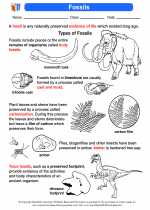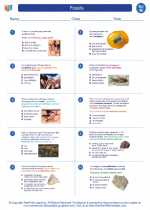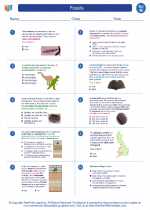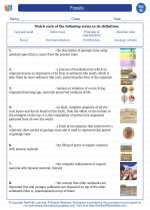Gas
Gas is one of the four fundamental states of matter, along with solid, liquid, and plasma. It is characterized by its ability to expand to fill the shape and volume of its container.
Properties of Gas
- Expansion: Gases have the ability to expand and fill the entire volume of their container.
- Fluidity: Gases can flow and take the shape of their container.
- Compressibility: Gases can be compressed into a smaller volume.
- Low Density: Compared to solids and liquids, gases have low density.
- Diffusion: Gases spread out and mix with other gases due to their high kinetic energy.
- Pressure: The pressure of a gas is the force it exerts on the walls of its container due to the constant motion of its molecules.
Gas Laws
The behavior of gases is governed by several gas laws, including Boyle's Law, Charles's Law, and the Ideal Gas Law.
Boyle's Law
Boyle's Law states that the pressure of a gas is inversely proportional to its volume, when the temperature is held constant.
Charles's Law
Charles's Law states that the volume of a gas is directly proportional to its temperature, when the pressure is held constant.
Ideal Gas Law
The Ideal Gas Law combines Boyle's Law and Charles's Law, and introduces the concept of the number of moles of gas and the gas constant. It is expressed as: PV = nRT, where P is the pressure, V is the volume, n is the number of moles, R is the gas constant, and T is the temperature in Kelvin.
Gas Mixtures
Gases can form mixtures when they are combined. The behavior of gas mixtures is described by Dalton's Law of Partial Pressures, which states that the total pressure exerted by a mixture of non-reacting gases is equal to the sum of the partial pressures of individual gases in the mixture.
Gas Behavior
The behavior of gases can be described using the kinetic molecular theory, which states that gases consist of small particles in constant, random motion. This theory helps explain the properties and behavior of gases at the molecular level.
Conclusion
Gas is a fundamental state of matter with unique properties and behavior. Understanding the properties of gases and the gas laws is important in various scientific and practical applications.
.◂Science Worksheets and Study Guides Eighth Grade. Fossils

 Activity Lesson
Activity Lesson
 Worksheet/Answer key
Worksheet/Answer key
 Worksheet/Answer key
Worksheet/Answer key
 Worksheet/Answer key
Worksheet/Answer key
 Worksheet/Answer key
Worksheet/Answer key
 Vocabulary/Answer key
Vocabulary/Answer key
 Vocabulary/Answer key
Vocabulary/Answer key
